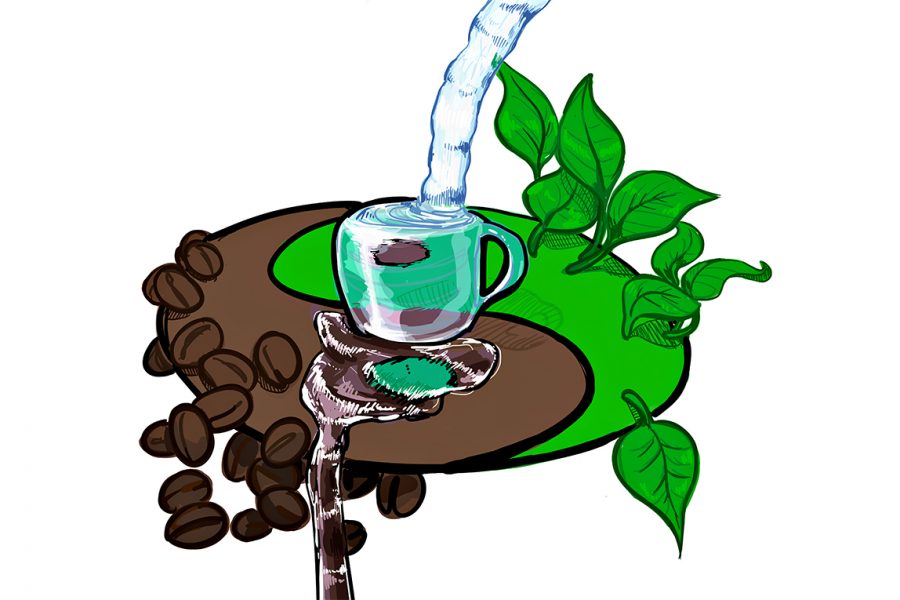Die-hard coffee fans and dedicated tea lovers have been debating for decades. Coffee addicts swear they can’t survive a day without coffee, and tea-lovers argue that tea is the healthier way to get your daily dose of caffeine.
However, it may not matter whether you prefer a hot mug of tea or a quick cup of coffee for your morning caffeine. In fact, coffee and tea are actually more similar than people think, said Drew Hays, assistant professor of instruction in the Department of Nutritional Sciences at UT and registered dietitian.
“Tea and coffee, interestingly, have similar biochemicals,” Hays said. “They not only have caffeine, but also other compounds that stimulate the nervous system. They also contain phytochemicals, or naturally occurring plant chemicals, that possibly promote health.”
Still, coffee seems to reign as the popular drink of choice among young adults. According to a 2018 online survey conducted by the National Coffee Association, 48 percent of 18 to 24 year olds drink coffee.
Cassandra Prince, architectural engineering freshman and coffee enthusiast, said coffee is essential to her daily routine.
“I always have one cup in the morning,” Prince said. “When I say cup, I mean my massively sized mug that I got for my 18th birthday that amounts to about two cups. Personally, it keeps me awake.”
Prince said she drinks tea too, but coffee is a necessity for waking up, while tea is more for winding down in the evenings.
“I really do like tea, but tea is more of a relaxing thing for me,” Prince said. “Coffee is more like a need than a novelty.”
Coffee fans may think that coffee provides more caffeine than tea, but Hays said that although that is generally the case, it really comes down to the brew.
“It’s highly variable,” she said. “It depends on how you brew and roast the coffee, and how you brew the tea or how the tea is processed.”
Hays said some teas do make a fine source of caffeine if coffee addicts want to make the bold switch.
“Tea that comes from the camellia sinensis leaf — green tea, black tea, oolong tea — will provide anti-inflammatory and antioxidant compounds, as well as caffeine,” said Hays.
William Azadi, biology freshman and tea-lover, said he gets his caffeine from black tea.
“Whenever I need to stay awake, I drink black tea,” Azadi said. “It’s a high source of caffeine and is something that can help you power through your day.”
Whether you prefer coffee beans or tea bags, Hays said drinking plain is always the best way to go.
“Just drinking coffee or tea plain with no added cream or sugar would be preferable because they’re basically calorie-free,” Hays said. “Where we get into trouble with coffee and tea is that they go from being essentially flavored water to a fatty sugar-like beverage.”
So, what’s the real tea? In the end, the choice to drink tea or coffee really comes down to culture.
“There’s a lot of cultural significance with tea and coffee, and that may play a bigger role than the actual health benefits,” Hays said. “As Americans, we hope that some daily beverage is going to cure all of our illnesses, but that’s highly unlikely. However, if it gives us a sense of community or helps us get on our schedule … it can benefit us in that way.”















